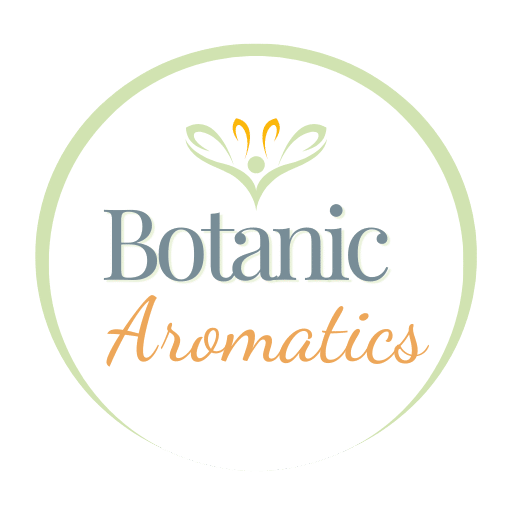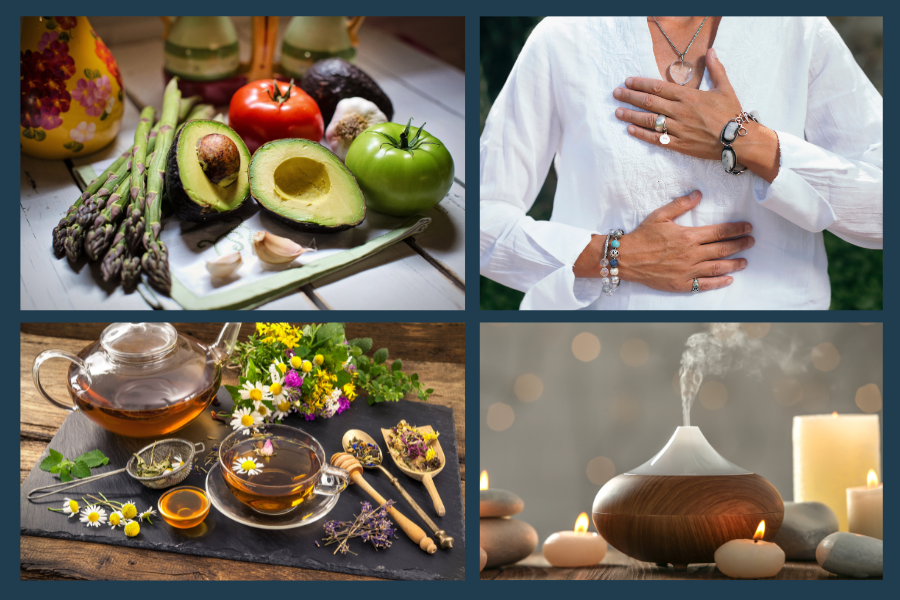Welcome, dear reader, to your ultimate guide on how to naturally lower your blood pressure. Whether you’re the type who breaks into a sweat just thinking about high blood pressure or someone who’s just curious about healthier living, you’ve come to the right place. We’re about to dive into the delightful world of dietary choices, exercise routines, calming meditation practices, the fragrant wonders of essential oils, and soothing herbal teas. And don’t worry, we’ll keep it light, engaging, and maybe even a bit funny. So, let’s get your blood pressure down to zen levels!
You Are What You Eat (So Don’t Be a Sodium Sponge)
Have you ever heard the saying “You are what you eat”? Well, when it comes to blood pressure, it’s frighteningly accurate. The good news? You don’t have to live off bland food to maintain healthy blood pressure. Research shows that a diet rich in fruits, vegetables, whole grains, legumes, seeds, nuts, fish, and dairy, while low in meat, sweets, and alcohol, can significantly reduce blood pressure (Ndanuko et al., 2016). Imagine yourself as a vibrant rainbow of veggies rather than a sodium sponge. Sounds better, right?
A systematic review by Ndanuko et al. (2016) underscores the benefits of such dietary patterns. It’s like the dietary superheroes swooping in to save the day—low sodium, high potassium, and other nutrients work together to keep your blood pressure in check. And for those who think a little indulgence is harmless, here’s a reality check: meat, high-fat foods, sweets, and alcohol are the dietary villains that sneak in and raise your blood pressure when you’re not looking (Strilchuk et al., 2020). So, next time you reach for that extra slice of bacon, remember—it’s plotting against you!
Key Takeaways:
Do: Fill your plate with fruits, veggies, whole grains, legumes, nuts, seeds, fish, and dairy.
Don’t: Overindulge in meat, sweets, or alcohol if you want to keep your blood pressure in the safe zone.
Move It or Lose It (Your Healthy BP, That Is
Exercise isn’t just for getting those rock-hard abs; it’s a powerful tool to keep your blood pressure in check too. But before you sign up for that ultra-marathon, consider this: lower-intensity exercises are actually more effective in reducing blood pressure than high-intensity workouts (Petrella, 1998). Yep, you read that right. You don’t need to punish yourself with hours of grueling exercise. Just get moving regularly, and you’ll see results.
Rodrigues et al. (2022) found that most of the antihypertensive benefits of exercise training are seen after just 10 weeks of consistent, moderate activity. So whether it’s a brisk walk, a bike ride, or even some casual gardening, as long as you’re moving regularly, you’re on the right track. Oh, and more isn’t always better—working out more than three times a week or for over 50 minutes at a time doesn’t give you extra points (Petrella, 1998). So, kick back and enjoy that walk in the park without the guilt trip.
After a good workout, essential oils can support your recovery by soothing sore muscles and reducing inflammation. Learn more in our blog post Essential Oils for Everyday Life: Fitness and Recovery.
Key Takeaways:
Do: Engage in regular, moderate-intensity exercise like walking, cycling, or gardening.
Don’t: Feel pressured to overdo it; more isn’t always better.
Namaste the High BP Away
Now, let’s talk about meditation—the practice that can calm your mind and, as research suggests, lower your blood pressure too. Whether you’re a seasoned yogi or a complete beginner, meditation can work wonders. According to Park and Han (2017), meditation plays a significant role in lowering blood pressure, especially for those over 60. Meanwhile, yoga seems to be more effective for younger folks under 60. Think of it as a win-win situation—meditation and yoga not only lower your stress but also keep your blood pressure in check.
But how does this work, you ask? Pascoe et al. (2017) explain that meditation helps mediate the physiological markers of stress, which is a fancy way of saying it calms your body down enough to let your blood pressure chill out too. It’s like telling your body, “Hey, it’s all good,” and your blood pressure responds, “Yeah, I can relax now.”
Key Takeaways:
Do: Practice meditation regularly, especially if you’re over 60.
Don’t: Ignore yoga—it’s particularly effective for the younger crowd.
Breathe Easy and BP Will Follow
Imagine lowering your blood pressure just by breathing in the scent of your favorite essential oils. Sounds too good to be true? Well, it’s not! Research by Kim et al. (2012) found that aromatherapy, specifically inhalation of essential oils, can effectively lower systolic blood pressure and calm the sympathetic nervous system (the part of you that freaks out during stress). The best part? It’s as easy as breathing—literally.
Another study by Cha, Lee, and Yoo (2010) supports these findings, showing that essential oils can positively affect the autonomic nervous system, which plays a crucial role in blood pressure regulation. So, the next time you’re feeling stressed, take a deep breath of lavender or bergamot, and let your blood pressure take a well-deserved break.
For a calming drive, try using essential oils in your car with a diffuser or by placing a few drops on a cotton ball. This can help reduce stress and keep your blood pressure in check even during the busiest commutes.
Key Takeaways:
Do: Use essential oils like lavender and bergamot in your daily routine to help manage blood pressure.
Don’t: Underestimate the power of a good sniff!
Sip Your Way to a Healthy Heart
If you’re a fan of herbal teas, you’re in for a treat. Not only do they taste great, but they can also help lower your blood pressure. Affan et al. (2020) highlight that certain herbal supplements, like resveratrol and pycnogenol, show promising antihypertensive effects. Even common beverages like beetroot juice and cherry juice have been found to lower systolic blood pressure effectively.
So, why not swap out that afternoon coffee for a cup of hibiscus tea? It’s a small change that can make a big difference. Your heart will thank you, and who knows, you might even find a new favorite beverage.
Key Takeaways:
Do: Incorporate herbal teas like hibiscus, beetroot juice, and cherry juice into your diet.
Don’t: Stick to coffee when you can enjoy a heart-healthy tea instead.
The Natural Way to a Healthier You
Lowering your blood pressure doesn’t have to be a daunting task. With a balanced diet, regular exercise, mindful meditation, the use of essential oils, and a cup of herbal tea, you can naturally manage your blood pressure and enjoy a healthier life.
So go ahead, try these natural methods, and watch your blood pressure drop faster than a lead balloon.
Your heart—and your sense of humor—will be better for it.
We’d love to hear from you! Please share your experiences and tips in the comments below. Your insights can help others on their journey to naturally lower their blood pressure!
Let’s start a conversation and learn from each other!
References
Affan, I. N., Azizah, Z., & Rivai, H. (2020). Overview of the phytochemicals of medicinal plants to lower blood pressure. Scholars Academic Journal of Pharmacy, 9(11), Article 006. https://doi.org/10.36347/sajp.2020.v09i11.006
Cha, J.-H., Lee, S.-H., & Yoo, Y.-S. (2010). Effects of aromatherapy on changes in the autonomic nervous system, aortic pulse wave velocity, and aortic augmentation index in patients with essential hypertension. Journal of Korean Academy of Nursing, 40(5), 705-713. https://doi.org/10.4040/jkan.2010.40.5.705
Kim, I.-H., Kim, C., Seong, K., Hur, M.-H., Lim, H. M., & Lee, M. S. (2012). Essential oil inhalation on blood pressure and salivary cortisol levels in prehypertensive and hypertensive subjects. Evidence-Based Complementary and Alternative Medicine, 2012, Article 984203. https://doi.org/10.1155/2012/984203
Ndanuko, R. N., Tapsell, L. C., Charlton, K. E., Neale, E. P., & Batterham, M. J. (2016). Dietary patterns and blood pressure in adults: A systematic review and meta-analysis of randomized controlled trials. Advances in Nutrition, 7(1), 76-89. https://doi.org/10.3945/an.115.009753
Park, S.-H., & Han, K. S. (2017). Blood pressure response to meditation and yoga: A systematic review and meta-analysis. The Journal of Alternative and Complementary Medicine, 23(9), 685-695. https://doi.org/10.1089/acm.2016.0234
Pascoe, M. C., Thompson, D. R., Jenkins, Z. M., & Ski, C. F. (2017). Mindfulness mediates the physiological markers of stress: Systematic review and meta-analysis. Journal of Psychiatric Research, 95, 156-178. https://doi.org/10.1016/j.jpsychires.2017.08.004
Petrella, R. J. (1998). How effective is exercise training for the treatment of hypertension? Clinical Journal of Sport Medicine, 8(3), 224-231. https://doi.org/10.1097/00042752-199807000-00011
Rodrigues, G. D., Lima, L. S., da Silva, N. C. S., Telles, P. G. L., da Mota Silva Rocha, T. M., de Aragão Porto, V. Q., Cardoso, V. V., & Soares, P. P. da S. (2022). Are home-based exercises effective to reduce blood pressure in hypertensive adults? A systematic review. Clinical Hypertension, 28(1), Article 28. https://doi.org/10.1186/s40885-022-00211-8
Strilchuk, L., Cincione, R. I., Fogacci, F., & Cicero, A. F. G. (2020). Dietary interventions in blood pressure lowering: Current evidence in 2020. Kardiologia Polska (Polish Heart Journal), 78(7-8), 659-666. https://doi.org/10.33963/KP.15468
Explore More Wellness Tips
Follow Us on Social Media
Disclaimer: The information provided in this content is for educational purposes only and is not intended to diagnose, treat, cure, or prevent any illness or health condition. The use of essential oils and natural remedies mentioned herein should not replace professional medical advice or treatment. We strongly recommend consulting with a qualified healthcare practitioner, such as a physician, aromatherapist, or other experts in integrative medicine, before starting any new health regimen, especially if you have pre-existing health conditions, are pregnant, breastfeeding, or considering the use of essential oils for children. Always perform a patch test for allergic reactions before applying essential oils topically, and follow safe usage guidelines. Your health and wellness are important to us, and making informed decisions with professional guidance is paramount.

Leslie has been a dedicated explorer of holistic remedies for over two decades. Her personal journey has evolved into a thriving business, Botanic Aromatics. Currently completing a certification in professional aromatherapy through Essence of Thyme College of Holistic Studies, Leslie brings a wealth of knowledge and passion to the realm of natural wellness. With a BA in psychology, Reiki mastery, ordained minister, and shamanic practitioner, Leslie combines diverse skills and insights to pursue holistic living. Alongside her holistic ventures, Leslie is an avid writer, committed to sharing information and passionately conveying insights and knowledge to inspire others on their wellness journey. In her business, Leslie seamlessly intertwines research and intuition to craft unique products for health and wellness, embodying a commitment to balance and personal well-being.
Content written in collaboration with ChatGPT4, Co-Pilot, Yoast, Grammarly and Canva

